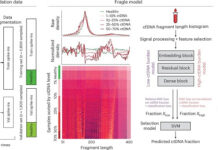Mystic seers such as Baba Vanga and Nostradamus predicted medical advancements for 2025, including cures for cancer. While some of their prophecies are now being questioned, the recent announcement from Russia about a personalized mRNA cancer vaccine at the start of the year has drawn attention. However, experts caution against viewing these developments as mystical predictions and emphasize the complexities involved in the actual scientific process.
Scientific Caution and the Need for Rigorous Validation
The scientific community remains cautious, urging the need for thorough validation before making any definitive claims. While mRNA technology has shown potential in revolutionizing cancer treatment, experts note that the lack of published clinical data and the gap between preclinical results and human trials make it difficult to assess its immediate viability.
Dr. Sanjay Singh, CEO of Gennova Biopharmaceuticals Ltd., highlighted, “In medicine, especially evidence-based practice, any claim must be backed by solid proof. Preclinical mouse data suggests a 70% reduction in tumor size, but there’s a significant gap between mouse studies and human application. Until we have concrete data on safety, efficacy, and long-term impact, these claims remain unverified.”
The Journey from Laboratory to Clinic
Dr. Gaurav Narula, Professor of Pediatric Oncology at Tata Memorial Center, echoed similar concerns, emphasizing that science requires data over media reports. “In science, we follow a principle: ‘In God we trust; all others must bring data.’ Without data, it’s impossible to accept such claims,” he said.
Dr. Narula further explained that the transition from promising lab results to effective clinical application is a long and rigorous process. “Even if early-stage research shows exciting mouse data, the path from there to human trials is extensive. Cancer vaccines, unlike vaccines for common infections, affect a smaller portion of the population, and clinical trials involving hundreds of patients are necessary for verification.”
The Long Road to Validating Cancer Vaccines
While the field of cancer vaccines is progressing, Dr. Harit Chaturvedi, Chairman of the Max Institute of Cancer Care, remarked, “We are far from clinical application.”The oncology community remains optimistic, but we must acknowledge that bold announcements can sometimes be exaggerated.” He noted that, while mRNA-based approaches have the potential to revolutionize cancer care, “true progress depends on rigorous scientific validation.”
Dr. Santhosh Devadas, Consultant Medical Oncology at Ramaiah Memorial Hospital, reinforced this view, stating, “Immunotherapy is a promising field, and while we are not yet at Phase 0 in terms of clinical trials, some Phase 2b melanoma trials for mRNA vaccines show proof of concept. However, it will take time to translate this into real-world treatments.”
Exciting but Unproven: Personalized Cancer Vaccines
Dr. Rajan Sriraman, Research Director at Reliance Lifesciences, discussed the promise of personalized cancer vaccines, which tailor treatments to a patient’s tumor profile. However, he cautioned, “While mRNA technology and other immunotherapy methods hold great potential, each cancer type may require different approaches. Translating mouse data to human efficacy is a complex process that still requires extensive clinical trials.”
Dr. Sriraman also highlighted the complexity of developing personalized vaccines, which involve advanced genomic analysis and computational modeling to create individualized treatments. “Despite its potential, we need extensive clinical validation before mRNA-based cancer vaccines can be considered a viable treatment option,” he stated.
The Evolution of Cancer Treatment and mRNA’s Role
Dr. Singh pointed out that cancer treatment has evolved in phases. “We started with surgery, followed by chemotherapy and targeted drugs. CAR-T therapy is improving outcomes, but it’s still not a permanent cure due to cancer’s ability to adapt,” he said. “mRNA technology offers a paradigm shift in oncology, and while it may not eliminate cancer completely, it represents a transformative era for cancer treatment.”
Speed, Innovation, and the Promise of mRNA
Dr. Sriraman explained that mRNA technology is exciting because it enhances the speed at which new treatments can be developed and delivered. However, he emphasized the need for further understanding of tumor microenvironments and cell signaling to optimize treatment strategies. “Cancer isn’t just about the tumor cells; the surrounding environment plays a crucial role. With better immunological insights, we can refine treatment strategies and maximize mRNA’s potential.”
Real-World Impact and Hope for Patients
Dr. Chaturvedi highlighted the hope mRNA technology brings to the oncology field. He shared positive experiences from patients benefiting from various breakthroughs. He cited an example where a patient diagnosed with melanoma, initially given limited options, survived for seven to eight years with the help of immunotherapy.
Dr. Devadas added, “This isn’t an isolated case. Many patients are benefiting from new discoveries, and as these innovations evolve, they have the potential to transform lives. What starts as incremental progress becomes monumental over time.”
Cautious Optimism for mRNA Cancer Vaccines
As reported by economictimes, in conclusion, Dr. Narula stated, “While the recent mRNA vaccine announcement is exciting, transitioning from potential to proven benefit takes time. The available data still doesn’t provide enough evidence for immediate conclusions. However, research is advancing rapidly, and groundbreaking therapies are already improving survival rates and quality of life.”
With over 400 clinical trials currently underway worldwide, the race for effective cancer vaccines is intensifying. In August 2024, UK doctors began trials on an mRNA vaccine for lung cancer, marking another step forward. As the need for cancer vaccines grows, experts remain optimistic. However, they emphasize that rigorous testing and clinical validation are key to ensuring the technology’s success.
The Global Need for Cancer Vaccines
We cannot overstate the importance of developing effective cancer vaccines. The global cancer burden continues to rise, with approximately 20 million new cases reported in 2022 alone. This highlights the urgent need for new treatments. While the path forward remains long and uncertain, advances in mRNA technology offer hope. This technology could transform cancer care radically in the future.
























